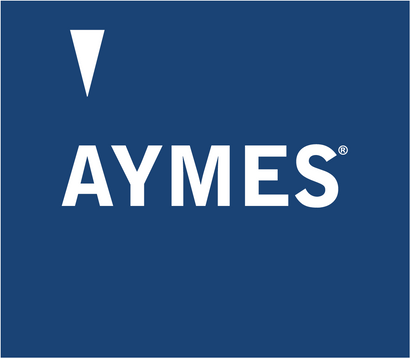Rebecca McManamon has worked in the NHS as a Palliative Care Dietitian in a unique role spanning acute and community care. She was also the secretary of the Palliative Care subgroup of the BDA. She now works in the independent sector, managing adults and children with palliative needs, mainly specialising in neurological conditions. In this article, we explore the role of a palliative care dietitian and tackle some common myths and misconceptions about working in this area.
What is meant by palliative care and end-of-life care? How do the terms differ?
Palliative care is providing care for anyone who has a life-limiting condition. It could be provided over many years or even decades. An example would be someone with a progressive neurological condition such as multiple sclerosis (MS). End-of-life care tends to refer to care within the final year of someone's life. But it’s very difficult to predict when that time may be.
Does nutrition have a role in palliative care?
Absolutely, nutrition plays a key role. Firstly, it has an important role in optimising a person's quality of life, enabling them to live as fulfilling and enjoyable a life as possible. For example, if we're not giving patients enough protein or vitamins and minerals, they might be at higher risk of pressure ulcers, which are very painful. This could confine them to their bed instead of a simple pleasure that improves their own perceived quality of life, for example sitting in the sofa with their family to watch TV or prolonging their dignity and independence by being able to mobilise themselves to the bathroom.
Secondly, it’s important to consider the emotional and social roles of eating. Dietitians play key roles in helping patients to get pleasure from eating whilst also managing patient/carer expectations and setting realistic nutritional goals.
Dietitians also play a holistic role in symptom management. For example, dietitians may request medication reviews or suggest dietary interventions to manage unpleasant symptoms such as nausea and vomiting.
Are patients dying because they are not eating or not eating because they are dying?
They’re not eating because they're dying. Their body is switching off and slowing down. For things like cancer cachexia, research has shown that appetite and oral intake declines in the later (refractory) stages.
Is there a role for Oral Nutrition Supplements (ONS) in palliative care?
Contrary to popular belief, there is a role for ONS in end-of-life care. Many palliative patients have poor appetite and oral intake, so ONS (especially low volume ONS) provides a convenient and easy source of nutrition.
Using ONS as a source of nutrition means that our patients can spend more of their time and energy doing something enjoyable, such as being with family or sitting out in the garden. Also, like we discussed earlier, nutrition can improve patients’ quality of life and reduce unpleasant pressure ulcers etc.
This doesn’t mean that ONS is appropriate for all palliative patients. Dietitians must consider each patient’s nutritional needs on an individual basis.
Is there a need for specialist palliative RDs?
There is a need for specialist palliative care dietitians because it's a very complex clinical area. The emotional side can be challenging too. Dietitians need training to support families and patients at the end of their life, but they also need support themselves because it can be a large emotional burden to take on. So, I think that having a specialised role enables that to happen.
If we don't have specialised roles, dietitians who are less experienced would be expected to see these patients in an acute NHS setting. They may not be able to deliver the level of care required because they've not had the opportunity to upskill or train in this area.
Do dietitians need a certain level of training to work in palliative care?
I would encourage supervision and training for dietitians wishing to work in end-of-life care. In acute hospital trusts, palliative care teams often run education sessions that are open to all staff. Local hospices often offer training days or events too. You can also undertake a Masters degree to specialise in palliative care.
Is it true that end-of-life treatment is mainly focused on cancer patients?
No, end-of-life treatment is available for anyone with a life-limiting condition. That could range from cancer to progressive neurological conditions or chronic respiratory diseases.
Do dietitians solely make decisions around the withdrawal of dietetic treatment (such as ONS and tube feeding)?
Discontinuing ONS is common in the latter phase of end-of-life care. At this stage, most patients will have stopped taking ONS and don’t wish to explore alternatives.
There are legal implications for the withdrawal of tube feeding as well as clinical, ethical and emotive considerations. It is a multi-disciplinary team decision and depends on the setting you’re working in. For example, in an acute hospital the managing physician, palliative care team and specialist nurses are usually involved in the decision making, as well as the family and patient’s wishes.
The Royal College of Physicians working party report came out earlier this year, is there any key guidance from this report that you’ve incorporated into your practice?
There’s a lot more guidance around the legalities and ethics. Clinicians can perhaps worry that they are they are contributing to someone dying because treatment has been discontinued, e.g., by stopping tube feeding. It’s extremely useful to know where we stand as professionals, and that we're not necessarily the ones making that sole decision. I would encourage everyone to read the clinical case study examples in this report.
Where would you direct dietitians to for further information on this topic?
The Royal College of Physicians document and the BDA Palliative Care Group are helpful. The latter is a BDA subgroup that sits under the Oncology Group but discusses palliative care patients, not just cancer. Referring to places such as the Cicely Saunders Institute to understand some of the language and treatments used in palliative care can useful.


